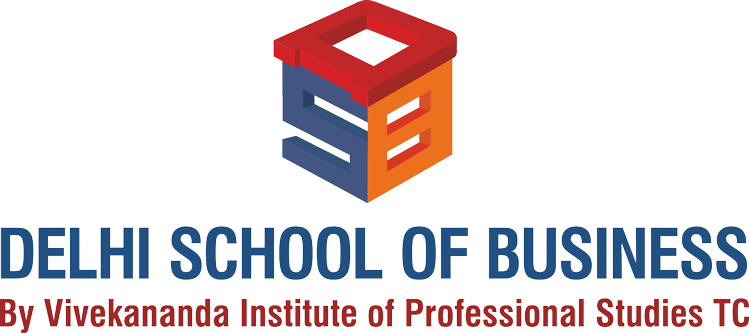Importance of Human Relations and Universal Human Values
Man is a social animal and what makes us that way is our need to connect with others and gain fulfillment from it.
Human relationships are such an integral part of daily life, be it communicating with family and friends or in the educational or professional environment. It is what fulfills the need for social interaction in human beings.
In keeping with the occasion of Fathers’ Day, this article focuses on the importance of fatherly relations and the overall significance of universal human values in our life.
Fathers are not just a parent. They are a guiding light, a pillar of strength and an abundance of love and protection and more, all in one person.
Conventionally they may be expected to provide for the family and be the bread earners, but a father’s role includes a lot more than just that. They are motivating and selfless human beings who are unconditionally dedicated to their families.
Society may expect fathers to be reserved and emotionally withdrawn due to the stereotypes that come with being a male, however, it does not define all fathers or their behavior.
Fathers can be and do everything that a mother can and more too. They can be kind, compassionate and nurturing caregivers. Single fathers, though less common in comparison to single mothers, also fulfill the roles of both parents and take on all the responsibilities needed to raise a child which proves fathers to be highly capable humans.
The role of fathers in a child’s development has come to the forefront of research and policy in recent years. To determine how crucial father figures are to their children’s education and development, researchers from the University of Bath collaborated with nearby schools and families.
A father’s role is seen as particularly important because of concerns of the difficulties faced by some fathers in sustaining relationships with their children, with almost 20 per cent of fathers reporting that they feel left out of their upbringing.
The researchers discovered that dads, other male family members, and the kids all had favorable opinions of the project, recognised its advantages, and expressed a desire for similar initiatives to continue in the future. Additionally, it was discovered that fathers who participate in Father’s Day activities are more likely to participate in other educational support activities including sports days, parents’ nights, and extracurricular outings.
Based on the study, the researchers contended that by involving fathers in activities which previously were seen to belong to the mother’s domain, child care and educational settings have the capacity to support families in ways which can enhance child outcomes and their human relations.
Healthy relationships play a truly vital role in the development of children from a young age.
Without the appropriate amount of affirmation and love, children may develop issues in creating interpersonal relationships in the future be it in their personal lives or professional environments.
Thus, from a young age it becomes very important for children to witness healthy forms of love and acceptance around them and from their family members.
In order for that to happen, the concept of toxic masculinity must be entirely done away with. Toxic Masculinity stems from internalized patriarchy and societal pressure that burdens men with restrictions and controls their behavior. It can create very harmful images in impressionable young minds if not stopped at the root.
Children must know and understand the true depths of devotion and tenderness that their fathers possess for them. It should be a common sight and not a rare one for fathers to be expressing their emotions and vulnerability in front of their children and family.
If emotional expression is not normalized, it could lead to emotionally stunted growth which later on manifests itself in the child’s life in the form of passive aggressiveness, inability to cooperate or inability to form any relations and connections.
Learning and understanding the vulnerabilities of human nature is what helps children in being more sensitive and empathetic humans upon growing up.
These values are not only necessary for being good human beings, but also to have a better and more positive working environment with motivating and supportive relations.
Universal human values play an important role in the life of humans at various stages including their homes, education and career. When a child enters school, their behavior depends on the culture and values imbibed in them, that is their family circle. In primary and secondary school life, there is a major influence of friends and teachers on their behavior that is their school circle. When they enter the college or professional course, the social circle plays an important role which has a dominant impact on humanity and moral capabilities. Thus the overall personality and values of an individual depends on all of these circles and factors.
Our ability to work with others is crucial to our professional success. It is characterized as interactions with or between people, particularly at work. Developing these abilities is crucial because a company’s organizational structure depends on positive interpersonal relationships.
Human values on a universal level signify the ability of people to cooperate with one another including team work, group projects, following instructions and directions and getting along with superiors and subordinates alike.
These values are not solely required in a formal working environment but are also beneficial to people on a personal and informal level with the joy they get from creating good relationships.
Interpersonal values and skills essentially have more importance than knowledge or intelligence. Even if one possesses the information about something but cannot communicate it effectively to anyone, then the information remains unutilised and loses value.
Intelligence is definitely important to have, but emotional intelligence is an even bigger requirement in organizational culture.
Teams are employed to fulfill company goals in the modern business environment because they bring people with a variety of abilities together. A better product and better ideas are typically created when those talents are used in a collaborative setting. In the majority of businesses, relying on others is necessary for us to succeed in our jobs. In this situation, the value of interpersonal relationships is clear. The organization as a whole will be less productive if people can’t get along and settle disputes, which may have an impact on profitability. Many businesses allow their workers the flexibility to choose how their work is carried out, or how they empower them. As a result, there may be a rise in employee motivation, which enhances interpersonal relationships and quality of work that’s done.
In order to create good interpersonal relationships in the workplace, people need to work on the same in their educational spaces as well.
Early on, relationship building should be inculcated in the students as a very important value.
At Delhi School of Business, integrated courses and classrooms and interactive sessions with the faculties promote the culture and creation of interpersonal relationships.
Regular webinars being held ranging from the stock market, yoga days, climate change and a lot more also encourage interaction.
There are also a lot of student clubs at DSB including-
- EKAY- The HR Club of Delhi School of Business
- FYNAMICS- The Finance and Economic Club of Delhi School of Business
- MARKX- The Marketing Club of Delhi School of Business
- PRATYAKSH- The Entrepreneurship Cell of Delhi School of Business
- EKAGRA- The Cultural Club of Delhi School of Business
- DAIVYA- The Social Club of Delhi School of Business
- INVICTUS- The Analytics Club of Delhi School of Business
- CIMA- The Centre for Media Integrated Activity of Delhi School of Business
These student led clubs conduct activities, seminars, conferences, competitions and more, which expressly encourage interaction, exchange of opinions, free flow of ideas and communication which helps build more human relationships.
The PGDM programme is specifically designed to be an important part of industry preparation. Our scholarly meticulousness is backed up by a one-of-a-kind instructional programme that ranges from spotting industry trends to disseminating critical administration information. The programme is outstanding, and it contains an intriguing showing philosophy based on Outcome Based Learning. The PGDM programme is linked to finding newer roadways of information and business abilities, and it was developed and presented by a group of top academicians and industry pioneers and to the best of its capabilities, encourages following universal human values.
In order to create strong interpersonal relations and harness such values it is important to have mentors and faculties who show you the correct path.
Our faculty at Delhi School of Business has a unique blend of academic expertise from IIMs and rich corporate backgrounds and affiliations with some of the most prestigious global organizations.
Thus they are a perfect support system for the students here at Delhi School of Business.
After inculcating such values through the PGDM program, DSB also does the rigorous groundwork for their students’ success. Placement Training is held to improve the skills of the students.
The Training & Development is an extremely thorough and structured program to prepare young minds for such highly sought-after placements. Students are given all the knowledge, skills and tools necessary to make informed career decisions by DSB’s integrated training and development programme.
Students’ future employability and development into skilled corporate citizens are both guaranteed by the active involvement of professional organizations with a focus on training management students.
All relationships and connections are very important for character development and success in any aspect of life. Ranging from parents, friends, educational institutions and professional work environments, all of these need human interactions and embodiment of universal human values.
To grow and learn in such an open and accepting environment, join Delhi School of Business for the MBA equivalent PGDM program. One of the best MBA colleges in Delhi, it is approved by AICTE, accredited by NBA and falls in A+ tier grade among all CAT colleges.
Admissions are open now, don’t miss out on the opportunity for holistic learning and personal growth as well as career development.

